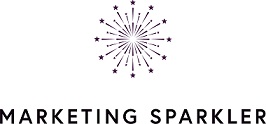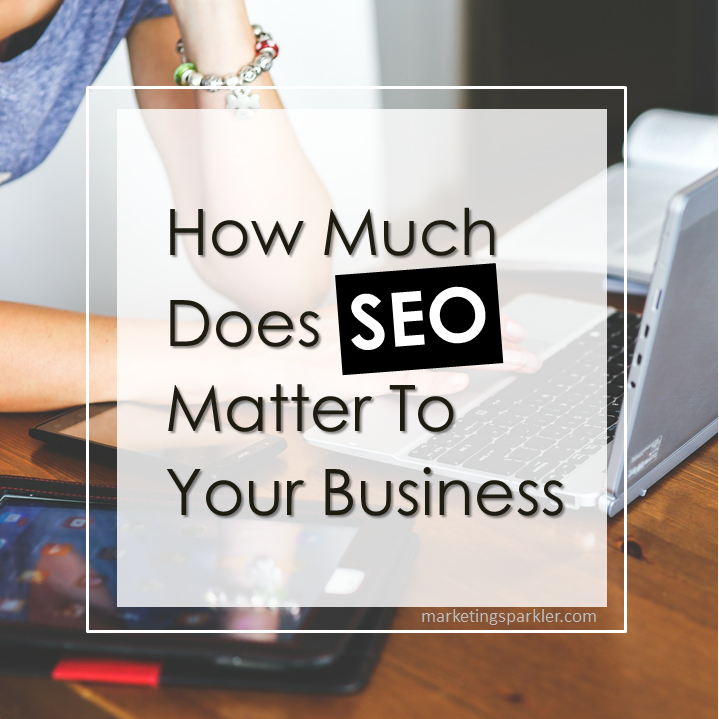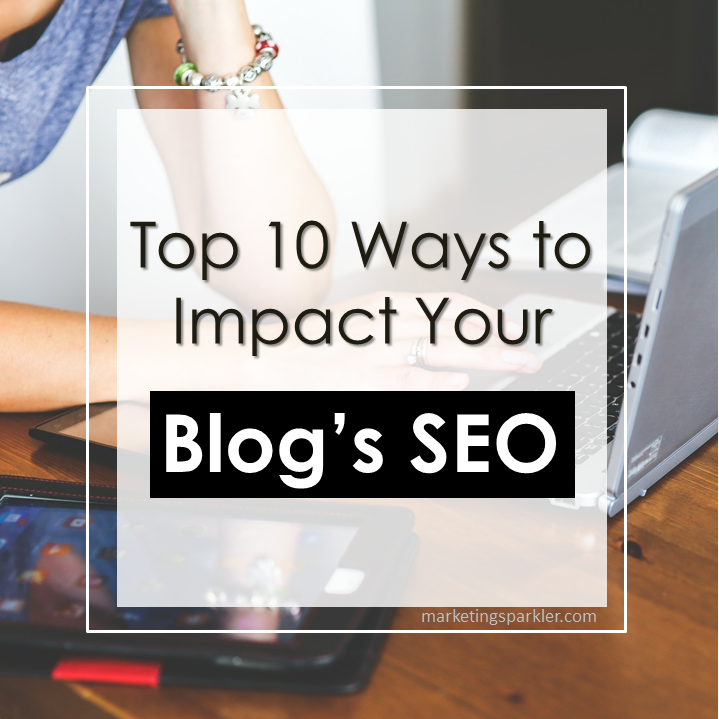In all honesty there isn’t much that’s more important than search engine optimization (SEO) when it comes to ensuring that you get the word out about your business. SEO is part of everything you do online. There is on-page and off-page SEO that every online and offline business owner should employ. That is, if they want to successfully market their business online.
How Much Does Your Website SEO Matter to Your Business?
Creating a highly optimized website or blog can go far in helping you get visitors to your site before you even start creating content. Ensure that you have a plan from the beginning, and that plan will pay off. The entire set up of your site can be based on good SEO practices. Proper keyword-rich domain name, strong keyword page names, well-crafted blog post titles with included keywords and tags are all important to your marketing plan.
When it comes to keywords, you can’t leave it to your best intuition. Keywords are primordial to attracting the right type of organic traffic, which is why you want to understand which search terms are the most valuable for your website. It is worth taking the time to familiarize yourself with this guide to doing keyword research. It will help you not only target the right terms but also understand how to track their performance.
SEO Gets Your Blog Noticed
The way SEO works is that when someone goes to a search engine to look for information on your topic or niche they type in a few words (called a keyword phrase). Then the search engine returns results for the search terms that the search engine hopes is high quality, accurate information as close to possible to what the searcher wanted.
SEO Rules Make Content Look Great
Using SEO rules, for both on-page and off-page content, can help your content look great with accurate titles, headers, subtitles and well-formed content that your audience wants to read. This is why understanding key website SEO tips is important. When you understand how your audience reads, as well as what they want to see, you can optimize and deliver the right content.
When you understand how your audience reads, and what they want to see, you can optimize and deliver the right content. Click To TweetSEO Identifies a Standard to Meet
Marketing your business truly is as simple as following plan of action that SEO provides. The most important part about SEO is the content, not the code. Yes, your site needs to load quickly, include search terms, alt tags, headers, sub headers, SEO titles and so forth, but the content in your site is the most important.
Since SEO is all about content, it should be pretty obvious that SEO can also help with creating great content. If you follow SEO rules while creating the content for your audience, the content is more likely to be found, and more likely to be enjoyed by your audience. The following checklist of website SEO tips will help you stay on track.
The most important part about SEO is the content, not the code. Click To TweetBlog SEO Tips to Increase Organic Reach
If you want your blog to be found by people outside of your friends and family, you have to understand and apply a few blog SEO tips to get found by people who don’t know you.
But blogging is all about content right? Well, kind of. The structure of your blog, as well as the content, should work together to make SEO magic.
The structure of your blog, as well as the content, should work together to make SEO magic. Click To TweetIn other words, your blog may have killer content, but if no one can find it in search, you won’t be able to use it as a marketing machine. Therefore, you need to take specific steps to ensure people can find your juicy content.
Top 10 Blog & Website SEO Tips That Make An Impact
The entire point of your blog or website is to deliver the right information to the right audience in the best possible way. SEO can help you accomplish this goal! Make sure your blog stands out and works as an effective digital marketing tool for your business. Use these blog SEO tips for every blog post you publish, and you will be more apt to be found via organic search.
- Your page title should be relevant, catchy, and include your target keywords. Fifty to 60 characters is an ideal length for blog titles.
- Use the meta description for each blog post and page on your site. The meta description tells human readers what the blog post is about and encourages them to click through and read your content.
- Check your url for spelling errors, and make sure the url is relevant to the page. The page url should contain the keywords (or keyword phrase) you want the page to rank for.
- Add keywords to your content, and resist the temptation to flood your content with those keywords. Keywords should flow organically in your content
- Header tags matter. Use one H1 tag per page and use it to describe what the page is about.
- Bold one of the keywords in your content so it stands out.
- Use at least one image for each blog post, and save the image with a file name that describes what the image is about.
- Use keywords in the Alternative Text field of the image. Search engines do not read images; however they can read and index the “alternative text” field.
- Use blog categories to order your blog archives. Archives ordered by date offer no value to your readers or search engines. Categories are easier to index for search purposes, and they’re easier for your human readers to search.
- Once your blog is published, make sure you ping the search engines and blog directories, to re-index your site to include this update.
SEO Is All About Content and Content Is King
When you hear rumors that SEO is dead, it’s only dead for business owners who have not focused on the importance of providing their audience with good information, content, products and services. Instead, they focused on tricks and then did not deliver quality content once their audience clicked through to their site.
It’s true that algorithms change, as do SEO practices. The important point to remember is that SEO is not there to trick people into finding your website, blog, products or services. SEO is there to help you serve your audience and provide value to them. If the right audience can’t find you, you won’t be able to do that. If you focus first on providing value, then on using SEO to help you deliver that value, you can’t go wrong.
SEO Provides a Massive Return on Investment
Don’t get lost in the digital world. Boost your blog’s visibility and apply these blog SEO tips to start driving your traffic from search engines. The great thing about using SEO is that the payoff is large. If you do it correctly, what you do today in terms of SEO will continue to pay off in the future, years down the road.
Ciao,
Miss Kemya
What’s your best tip for boosting your blog’s SEO?




[…] you really want people to read your blog content, you should always try to start with a keyword phrase that your target readers are looking for. Longtail keywords are the best and they will help […]
[…] Whatever the case may be, periodically recycling your old posts helps to keep the traffic flowing through your website, and it’s a big help for your SEO! […]
Well, it’s true that the structure of the content matters. It’s the best way to make your article look natural and clean, and efficient in baiting links.
[…] Top 10 Best Ways to Impact Your Blog's SEO | Blog SEO … http://marketingsparkler.com/If you want your blog to be found by people outside of your friends and family, you have to understand and apply a few blog SEO tips to get found by people who don't know you. But blogging is all about content right? Well … […]